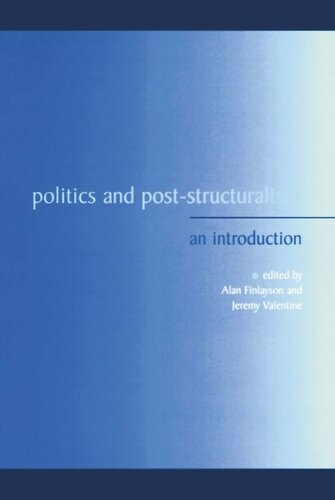

Most ebook files are in PDF format, so you can easily read them using various software such as Foxit Reader or directly on the Google Chrome browser.
Some ebook files are released by publishers in other formats such as .awz, .mobi, .epub, .fb2, etc. You may need to install specific software to read these formats on mobile/PC, such as Calibre.
Please read the tutorial at this link: https://ebookbell.com/faq
We offer FREE conversion to the popular formats you request; however, this may take some time. Therefore, right after payment, please email us, and we will try to provide the service as quickly as possible.
For some exceptional file formats or broken links (if any), please refrain from opening any disputes. Instead, email us first, and we will try to assist within a maximum of 6 hours.
EbookBell Team

4.4
102 reviewsPost-structuralism is recognised as a major force within literary and cultural studies. This book is the first to apply the theory to politics and to show the ways in which it can illuminate political theory and analysis. As such it is likely to become a key text in the development of this area, providing a stimulating introduction to the subject. Authors explore the two-way relationship, showing not only that post-structuralism can enhance the study of politics, but also that advocates of post-structuralism can benefit from being open to the lessons political studies can teach. The book aims to (i) clarify the relationship of contemporary theory to politics; (ii) open up a new intellectual interface; (iii) create a space for exchange between disciplines; (iv) provide a statement of the role of post-structuralist theory in politics
Covering three main sections - What is Post-structuralist Political Theory?; Post-structuralism and Political Analysis; and The Question of the Political - the authors draw on themes raised by Continental thinkers such as Derrida, Nancy and Deleuze, and Anglo-American thinkers such as Butler and Connolly in their questioning of the theoretical and empirical understanding of contemporary politics.
Key Features